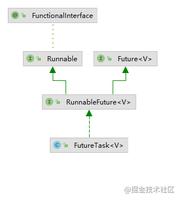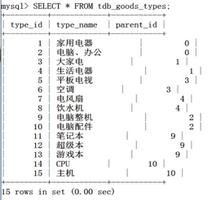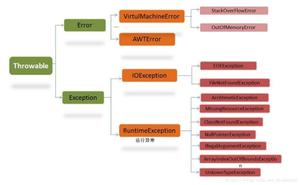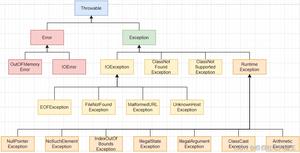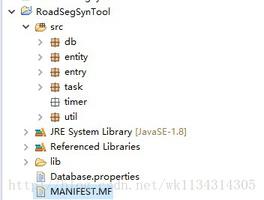Java异常处理实例教程
1、什么是异常?
首先,让我们来看看下图的例子:
在这个例子中,存在的错误码由除以0的结果。由于除以0而导致异常: ArithmeticException
HelloException.java
package com.yiibai.tutorial.exception;
public class HelloException {
public static void main(String[] args) {
System.out.println("Three");
// This division no problem.
int value = 10 / 2;
System.out.println("Two");
// This division no problem.
value = 10 / 1;
System.out.println("One");
// This division has problem, divided by 0.
// An error has occurred here.
value = 10 / 0;
// And the following code will not be executed.
System.out.println("Let's go!");
}
}
运行这个例子,得到的结果是:

可以看到控制台屏幕上的通知。错误通知是很清楚的,包括代码行的信息。
让我们通过下图中的流程看看下面的程序:
- 程序从(1),(2)至(5)步骤正常运行。
- 在步骤(6)程序除以0。
- 程序跳转出 main 方法后,而(7)代码行还没有被执行。

我们将修改上述实施例的代码。
HelloCatchException.java
package com.yiibai.tutorial.exception;
public class HelloCatchException {
public static void main(String[] args) {
System.out.println("Three");
// This division no problem.
int value = 10 / 2;
System.out.println("Two");
// This division no problem.
value = 10 / 1;
System.out.println("One");
try {
// This division has problem, divided by 0.
// An error has occurred here.
value = 10 / 0;
// And the following code will not be executed.
System.out.println("Value =" + value);
} catch (ArithmeticException e) {
// The code in the catch block will be executed
System.out.println("Error: " + e.getMessage());
// The code in the catch block will be executed
System.out.println("Ignore...");
}
// This code is executed
System.out.println("Let's go!");
}
}
运行示例结果:
Three
Two
One
Error: / by zero
Ignore...
Let's go!
我们将按以下实例图像的流程来解释下面的程序。
- 步骤(1)至(5)是完全正常的。
- 异常发生在步骤(6),除以0出现了问题。
- 它立即跳到catch块执行命令,步骤(7)被跳过。
- 步骤(8),(9)被执行。
- 步骤(10)被执行。

2、 异常层次结构
这是Java异常的分层图的模型。
最高的类是:Throwable
两个直接子类是 Error 和 Exception。
在异常转移有一个RuntimeException子类,包括Java中的编译时未检查异常。检查并取消检查在编译时,在下一部分的实施示例中说明。
注意:您的类应该从两个分支:Error或Exception继承,而不是直接从Throwable继承。

当一个动态链接失败,或在虚拟机的一些其他的“硬”故障发生时,虚拟机引发这个错误。典型的Java程序不捕获错误,所以Java程序都不会抛出任何错误。大多数程序抛出并捕获从Exception类派生的对象。异常指示出现了一个问题,但是这些问题并不是严重系统性问题。你写的大多数程序将会抛出和捕获异常。
Exception类在Java包定义了许多子类。这些子类指明不同类型的可能会发生异常。 例如,NegativeArraySizeException表明程序试图创建一个大小为负的数组。
一个导演的子类在Java语言中的特殊含义: RuntimeException类表示Java虚拟机中发生(在运行期间)的异常。运行时异常的一个例子是NullYiibaierException异常,其中,当一种方法试图通过一个空引用来访问对象的成员时就会引发。 NullYiibaierException 可以在任何地方出现某个程序试图取消引用一个对象的引用。经常检查异常捕获的好处远远超过它的成本。
由于运行时异常是无所不在的,在试图捕获或指定所有的时间是徒劳的作法(不可读和不可维护的代码), 编译器允许运行时异常去未捕获和指定。
Java包定义几个RuntimeException类。您可以捕获这些异常,就像其他异常。但是并不需要一种方法来指定它抛出运行时异常。此外可以创建自己的RuntimeException子类。 运行时异常 - 下面讨论包含何时以及如何使用运行时异常进行了深入探讨。 3、使用try-catch处理异常
编写从Exception 继承的类。

AgeException.java
package com.yiibai.tutorial.exception.basic;
public class AgeException extends Exception {
public AgeException(String message) {
super(message);
}
}
TooYoungException.java
package com.yiibai.tutorial.exception.basic;
public class TooYoungException extends AgeException {
public TooYoungException(String message) {
super(message);
}
}
TooOldException.java
package com.yiibai.tutorial.exception.basic;
public class TooOldException extends AgeException {
public TooOldException(String message) {
super(message);
}
}
以及AgeUtils类检查年龄的检查静态方法。
AgeUtils.java
package com.yiibai.tutorial.exception.basic;
public class AgeUtils {
// This method checks the age.
// If age is less than 18, the method will throw an exception TooYoungException
// If age greater than 40, the method will throw an exception TooOldException
public static void checkAge(int age) throws TooYoungException,
TooOldException {
if (age < 18) {
// If age is less than 18, an exception will be thrown
// This method ends here.
throw new TooYoungException("Age " + age + " too young");
} else if (age > 40) {
// If age greater than 40, an exception will be thrown.
// This method ends here.
throw new TooOldException("Age " + age + " too old");
}
// If age is between 18-40.
// This code will be execute.
System.out.println("Age " + age + " OK!");
}
}
检查异常和未经检查的异常:
AgeException是Exception,TooOldException的子类和TooYoungException2是 AgeException直接子类,所以它们是“Checked Exception”
在AgeUtils.checkAge(int)方法已经抛出异常,需要通过关键字“throws”,列出它们的方法声明。或者可以声明抛出更多的级别。
在使用 AgeUtils.checkAge(int) 位置也必须进行处理,以捕获异常,或继续抛出去。

"Checked exception" 是由 "Java Compiler"来检查。

有两个选择:

TryCatchDemo1.java
package com.yiibai.tutorial.exception.basic;
public class TryCatchDemo1 {
public static void main(String[] args) {
System.out.println("Start Recruiting ...");
// Check age
System.out.println("Check your Age");
int age = 50;
try {
AgeUtils.checkAge(age);
System.out.println("You pass!");
} catch (TooYoungException e) {
// Do something here ..
System.out.println("You are too young, not pass!");
System.out.println(e.getMessage());
} catch (TooOldException e) {
// Do something here ..
System.out.println("You are too old, not pass!");
System.out.println(e.getMessage());
}
}
}
在下面的例子中,我们将通过父类捕获异常(超Exception类)。
TryCatchDemo2.java
package com.yiibai.tutorial.exception.basic;
public class TryCatchDemo2 {
public static void main(String[] args) {
System.out.println("Start Recruiting ...");
// Check age
System.out.println("Check your Age");
int age = 15;
try {
// Here can throw TooOldException or TooYoungException
AgeUtils.checkAge(age);
System.out.println("You pass!");
} catch (AgeException e) {
// If an exception occurs, type of AgeException
// This catch block will be execute
System.out.println("Your age invalid, you not pass");
System.out.println(e.getMessage());
}
}
}
也可以组不同的异常在块中来处理,如果它们对逻辑程序处理是相同的方式。
TryCatchDemo3.java
package com.yiibai.tutorial.exception.basic;
public class TryCatchDemo3 {
public static void main(String[] args) {
System.out.println("Start Recruiting ...");
// Check age
System.out.println("Check your Age");
int age = 15;
try {
// Here can throw TooOldException or TooYoungException
AgeUtils.checkAge(age);
System.out.println("You pass!");
} catch (TooYoungException | TooOldException e) {
// Catch multi exceptions in one block.
System.out.println("Your age invalid, you not pass");
System.out.println(e.getMessage());
}
}
}
4、 try-catch-finally
我们已习惯于通过 try-catch 块捕获错误。Try-catch-finally 来完全处理异常。
try {
// Do something here
} catch (Exception1 e) {
// Do something here
} catch (Exception2 e) {
// Do something here
} finally {
// Finally block is always executed
// Do something here
}
TryCatchFinallyDemo.java
package com.yiibai.tutorial.exception.basic;
public class TryCatchFinallyDemo {
public static void main(String[] args) {
String text = "001234A2";
int value = toInteger(text);
System.out.println("Value= " + value);
}
public static int toInteger(String text) {
try {
System.out.println("Begin parse text: " + text);
// An Exception can throw here (NumberFormatException).
int value = Integer.parseInt(text);
return value;
} catch (NumberFormatException e) {
// In the case of 'text' is not a number.
// This catch block will be executed.
System.out.println("Number format exception " + e.getMessage());
// Returns 0 if NumberFormatException occurs
return 0;
} finally {
System.out.println("End parse text: " + text);
}
}
}
这是程序的流程。 finally块无论什么情况下总会被执行。

5、 环绕异常
- 我们需要一些类参与到这个例子:
- Person: 模拟一个受试者招募到公司的信息:姓名,年龄,性别。
- GenderException: 性别异常。
- ValidateException: 异常评估求职者。
- ValidateUtils: 静态方法类综合评价面试者。
- 如果男性年龄在18-40之间的被认为是有效的。
Person.java
package com.yiibai.tutorial.exception.wrap;
public class Person {
public static final String MALE = "male";
public static final String FEMALE = "female";
private String name;
private String gender;
private int age;
public Person(String name, String gender, int age) {
this.name = name;
this.gender = gender;
this.age = age;
}
public String getName() {
return name;
}
public void setName(String name) {
this.name = name;
}
public String getGender() {
return gender;
}
public void setGender(String gender) {
this.gender = gender;
}
public int getAge() {
return age;
}
public void setAge(int age) {
this.age = age;
}
}
GenderException.java
package com.yiibai.tutorial.exception.wrap;
// Gender Exception.
public class GenderException extends Exception {
public GenderException(String message) {
super(message);
}
}
ValidateException 类包有其他异常。
ValidateException.java
package com.yiibai.tutorial.exception.wrap;
public class ValidateException extends Exception {
// Wrap an Exception
public ValidateException(Exception e) {
super(e);
}
}
ValidateUtils.java
package com.yiibai.tutorial.exception.wrap;
import com.yiibai.tutorial.exception.basic.AgeUtils;
public class ValidateUtils {
public static void checkPerson(Person person) throws ValidateException {
try {
// Check age.
// Valid if between 18-40
// This method can throw TooOldException, TooYoungException.
AgeUtils.checkAge(person.getAge());
} catch (Exception e) {
// If not valid
// Wrap this exception by ValidateException, and throw
throw new ValidateException(e);
}
// If that person is Female, ie invalid.
if (person.getGender().equals(Person.FEMALE)) {
GenderException e = new GenderException("Do not accept women");
throw new ValidateException(e);
}
}
}
WrapperExceptionDemo.java
package com.yiibai.tutorial.exception.wrap;
public class WrapperExceptionDemo {
public static void main(String[] args) {
// One participant recruitment.
Person person = new Person("Marry", Person.FEMALE, 20);
try {
// Exceptions may occur here.
ValidateUtils.checkPerson(person);
} catch (ValidateException wrap) {
// Get the real cause.
// May be TooYoungException, TooOldException, GenderException
Exception cause = (Exception) wrap.getCause();
if (cause != null) {
System.out.println("Not pass, cause: " + cause.getMessage());
} else {
System.out.println(wrap.getMessage());
}
}
}
}
6、RuntimeException和子类 RuntimeException类及其子类都是“未检查的例外”。它不是由Java编译器在编译时进行检查。在某些情况下,你可以从这个分支继承编写自己的异常。
下面是属于RuntimeException分支一些类(当然,这还不是全部)。
一些处理这种类型异常的例子:

6.1- NullYiibaierException
这是最常见的异常,通常会导致错误在程序中。异常被抛出,当你调用方法或访问一个空对象的字段。
NullYiibaierExceptionDemo.java
package com.yiibai.tutorial.exception.runtime;
public class NullYiibaierExceptionDemo {
// For example, here is a method that can return null string.
public static String getString() {
if (1 == 2) {
return "1==2 !!";
}
return null;
}
public static void main(String[] args) {
// This is an object that references not null.
String text1 = "Hello exception";
// Call the method retrieves the string length.
int length = text1.length();
System.out.println("Length text1 = " + length);
// This is an object that references null.
String text2 = getString();
// Call the method retrieves the string length.
// NullYiibaierException will occur here.
// It is an exception occurs at runtime (type of RuntimeException)
// Javac compiler does not force you to use a try-catch block to handle it
length = text2.length();
System.out.println("Finish!");
}
}
运行示例的结果:

在现实中,像处理其他异常时,可以使用 try-catch 来捕获并处理这个异常。 然而,这是机械的,通常情况下,我们应该检查,以确保在使用它之前,对象不为空值。
您可以更正上面的代码,使其类似于下面的以避免空指针异常:
// This is a null object.
String text2 = getString();
// Check to make sure 'Text2' are not null.
// Instead of using try-catch.
if (text2 != null) {
length = text2.length();
}
6.2- ArrayIndexOfBoundException
当您试图访问一个无效的索引的数组元素就会发生此异常。例如,一个数组有10个元素可以访问,但您访问的是索引为20的元素。
ArrayIndexOfBoundsExceptionDemo.java
package com.yiibai.tutorial.exception.runtime;
public class ArrayIndexOfBoundsExceptionDemo {
public static void main(String[] args) {
String[] strs = new String[] { "One", "Two", "Three" };
// Access to the element has index 0.
String str1 = strs[0];
System.out.println("String at 0 = " + str1);
// Access to the element has index 5.
// ArrayIndexOfBoundsException occur here.
String str2 = strs[5];
System.out.println("String at 5 = " + str2);
}
}
为了避免 ArrayIndexOfBoundsException,我们更多的应该是检查数组而不是使用try-catch。
if (strs.length > 5) {
String str2 = strs[5];
System.out.println("String at 5 = " + str2);
} else {
System.out.println("No elements with index 5");
}
以上就是本文的全部内容,希望对大家的学习有所帮助。
以上是 Java异常处理实例教程 的全部内容, 来源链接: utcz.com/p/208185.html

